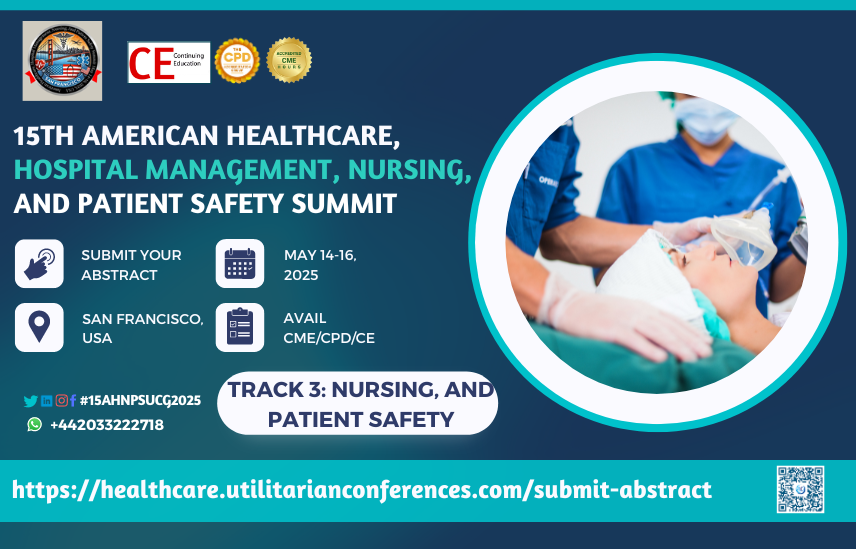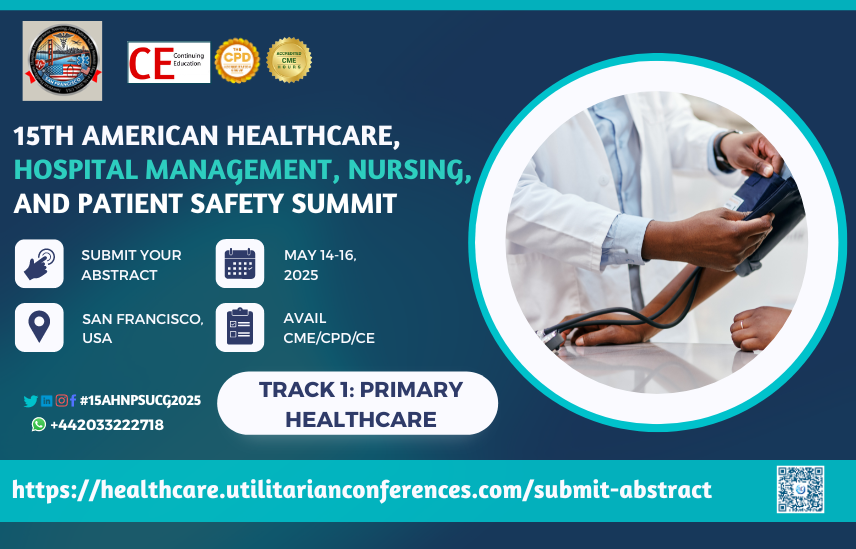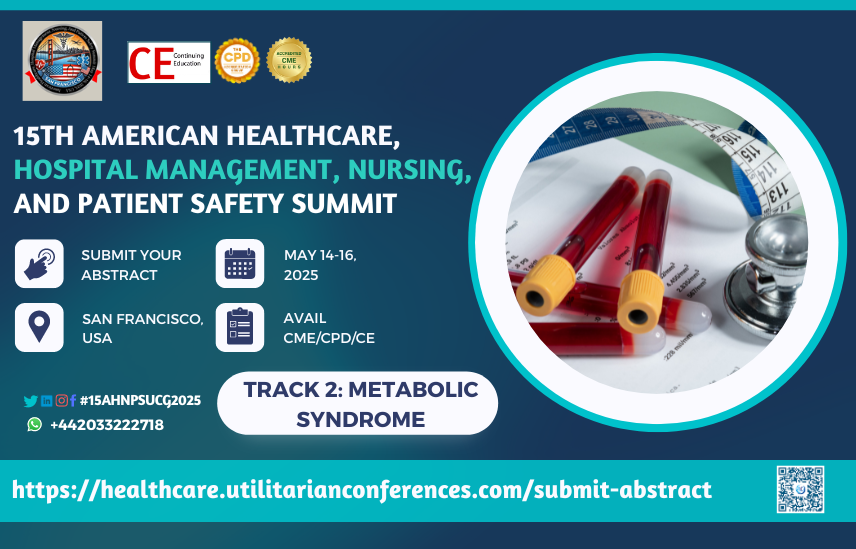Sub Tracks:
Safe Patient Handling, Cultural Competence, Medication Safety, Patient Care, Patient Experience, Patient Safety Movement, Patient Engagement, Patient Care Info, Patient Power, Patient Safety Expert, Patient Satisfaction, Patient Education, Patient Counseling, Patient Preference, Patient Assistance Program, What Is Patient Experience, Patient Innovation, Standard Patient Precautions, Patient Perspectives
Nursing is a healthcare profession focused on the care of individuals, families, and communities to help them achieve, maintain, or recover optimal health and quality of life. Nurses play a crucial role in patient care by assessing patient needs, developing and implementing care plans, administering medications, and educating patients and their families about health conditions. They work in various settings, including hospitals, clinics, community health centers, schools, and patients' homes. Nursing encompasses a wide range of specialties, from pediatrics and geriatrics to emergency care and mental health.
What are patient safety guidelines?
To overcome all the errors, we need to fix them before they happen. A major and essential guide that every medical staff should follow and strictly obey this;
Identify Patient Correctly: Incorrectly identifying a patient is a common hospital error. When you’re preparing to give medicine or perform a procedure, make sure to rely on at least two pieces of information – the Patient’s name and date of birth – to help ensure that patients receive the treatment intended for them. Also, check for the correct blood type before transfusions.
Prescribe medicine safely to the patients: Label all medication, syringes, cups, basins, and medical equipment. Take extra safety with patients on blood thinners. With the various number of prescription medicine in the market, there are more chances of significant potential error due to confusing brand, packaging and generic names. Make sure that any additional drugs don’t conflict with current ones.
Avoid surgical errors: The surgical process is one of the most delicate processes in healthcare. It needs to be completed within a specific time frame, or it can lead to serious health issues for patients. So it is more important that doctors be aware of this and complete surgery at a given time frame.
Build a rapid response system in an emergency: At any moment, medical emergencies happen without any notice. So it is the responsibility of all the medical authorities to build a skilled and efficient intense response team to take care of uninformed medical emergencies.
Hospital-acquired infections: Hospital-acquired infections (HAIs) are infections that people get after surgery or treatment in a hospital, and they can be severe. So every professional should make sure that they are taking serious measures and standards to avoid this while surgery, etc. Precautions should be taken because of the increase in cases of hospital-acquired infections.
Communicate safety information to Patient: In order to ensure safety, it is essential for medical professionals to communicate patient safety information to patients. For example, when a patient has been given a prescription for a drug that interacts with grapefruit, it is the responsibility to make sure they are informed not to eat grapefruit.





